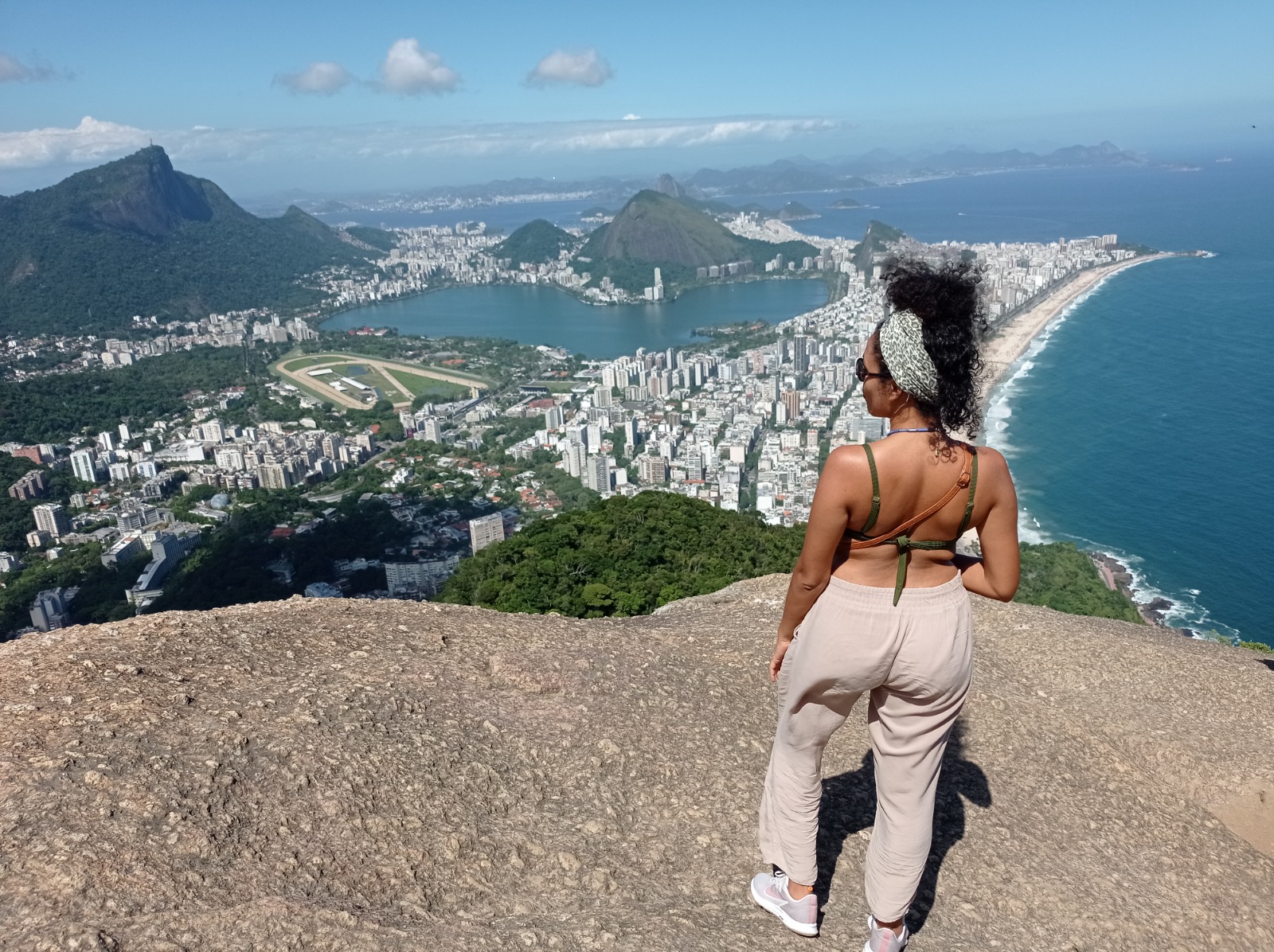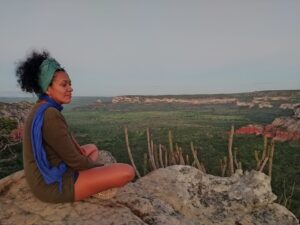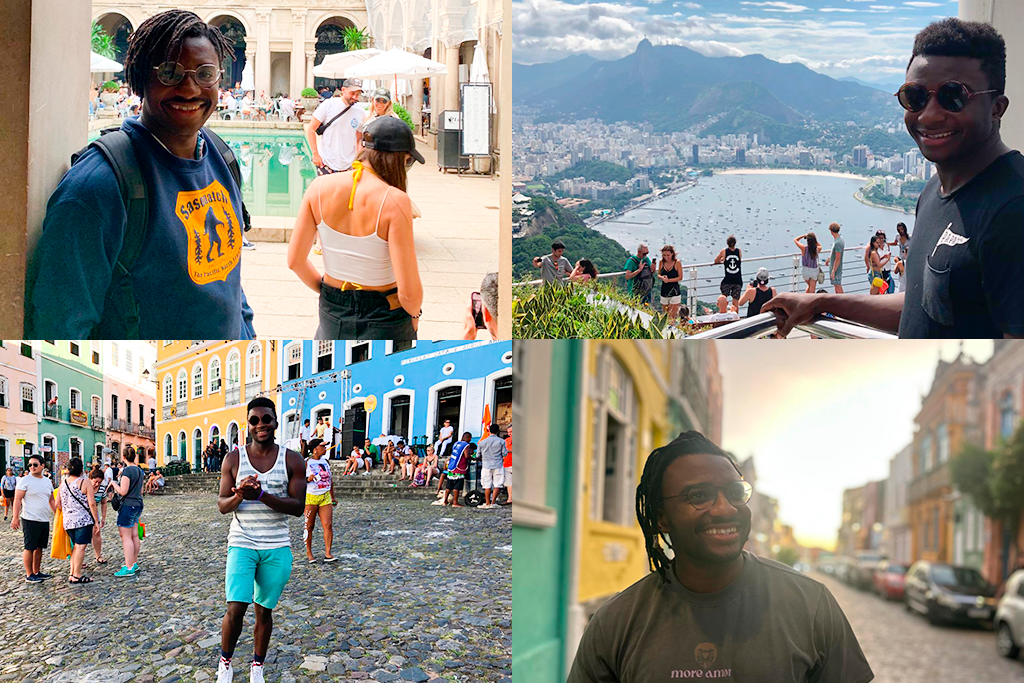
Talking about anti-racist tourism goes beyond the lack of diversity in traditional tourism, it is necessary to reconsider a whole culture of prejudice and hostility built up in the spaces of the tourism production chain; spaces that generate situations of discrimination in environments that often advertise “leisure and hospitality”, but which in practice and promote barriers and make distinctions for certain groups. How can we fight racism in this scenario?
We live in a diverse world, and even more so in a country full of fascinating cultures, ethnicities, and histories. However, the tourism industry doesn’t always reflect this diversity in a fair and inclusive way, making it blurred and whitewashed.
Brazilian panorama
According to Oliveira (2021), tourism is a social phenomenon that involves meeting others, differently, allowing for the exchange of knowledge and experiences. However, it also opens up space for ethnocentric discourses full of prejudice and racism, often inserted in a context of power. In tourism, every day, institutional and structural racism is evident.
It is therefore very important to bring up reflections on the subject as a way of broadening the understanding and problem of racism within companies and the tourist trade. In this way, the effective participation of these actors, coupled with the desire to build more plurality and knowledge about black culture in the sector, brings the possibility of creating and erecting new paths and challenges for tourism, such as Afrotourism.
According to CNN Brasil, Afrotourism represents a line of traditional tourism that emphasizes black culture in the destinations visited. It prioritizes black suppliers and implements affirmative actions to create a more welcoming, comfortable, and safe environment for black travelers during their travel experiences.
 Anti-racist tourism seeks to understand, respect, and value local cultures, combating stereotypes and promoting equality, but it also talks about recognizing and welcoming specific tourists, who are often harassed at a time when they should be enjoying leisure and tranquility. Black tourists in Brazil notice when expectations and interactions vary based on the color of their skin, a reality that we cannot ignore when approaching the subject of tourism.
Anti-racist tourism seeks to understand, respect, and value local cultures, combating stereotypes and promoting equality, but it also talks about recognizing and welcoming specific tourists, who are often harassed at a time when they should be enjoying leisure and tranquility. Black tourists in Brazil notice when expectations and interactions vary based on the color of their skin, a reality that we cannot ignore when approaching the subject of tourism.
It is essential to understand that tourism does not take place in a vacuum. Black tourists are often greeted with warm smiles and attentive service, but they also face biased looks and different treatment compared to white tourists.
Territorial experiences
People who declare themselves to be black in Brazil make up 55.5% of the population, according to the IBGE’s 2022 Census. Blacks are the majority of the population, being the sum of blacks and browns. Despite being the majority in a country as continental as Brazil, there is a lack of official data on blacks in tourism in Brazil. There is no official information about black travelers, we don’t know who they are, where they go, what they consume, how much they consume, what their travel habits are. This lack of information proves how problematic it still is for the sector to understand that black people are also travelers, that they like to see new places, and that they want to be treated as well as other tourists.
Below are excerpts from an account by my friend Tope Farotimi. An African from Nigeria, he visited Brazil for the first time in 2017, and on his blog, he decided to tell us a little about his experience in Brazil:
“When you arrive as a tourist in spaces where you are the only black person and the only other dark-skinned people in the bars/restaurants you frequent tend to be staff and cleaners, which has a very visible inequality marked by skin color; you become much more aware of your skin color, the perceptions of the other tourists, the white owners and staff of the spaces and your interactions with them, questioning people’s motives when you sense a difference in the treatment you receive. (…)
Also, you find yourself in situations where you are exposed to other tourists’ understanding of this inequality, the history that generated it, and the people most affected by it. In places with a majority black population, I’ve observed white tourists from Europe and southern Brazilians replicating racist and unconscious discourse in the places they themselves were enjoying while visiting and talking about the history of black people without any knowledge or respect, in a way that made me very uncomfortable.”
Tope has been back to Brazil a few more times and, in a recent conversation about how he feels today in the country with the second largest black population in the world, he said:
“These experiences I’ve had show the importance of developing tourism that in part shows real knowledge of the history of this country, combating such ignorance and overturning stereotypes of these racist looks and discourses. (…)When I think about racism in tourism, I think about the difference between the two experiences I had, when I was a tourist alone with other (white) tourists, and when I started to relate to Brazilian culture in a real and more rooted way, as well as making friendships that I will carry with me for life. (…)
Even though I experienced complex situations in Brazil, I dedicated myself to getting to know more about the country, getting to know Brazilians better, and understanding more so that I could put everything I observed the first time I arrived into context, and today I consider Brazil my home, which is why I’ve been back more often and my feelings have changed. Racial inequality and social problems do exist, as they do in many ways in many parts of the world, and it’s important to always point out the racist problem that Brazil carries and its special context, but at the same time there is also resistance, dignity, beauty, and the richness of the culture carried by the black peoples of Brazil that enchanted me and made me love them so much, which is why I keep coming back.”
Afrotourism initiatives that deserve attention – and respect
The Geledés Organization Portal, which has been fighting for women and black people for 35 years, wrote in its article How racism affects black travelers in Tourism that tourism is a choice, but it is also commerce, it is culture, it is money that circulates, knowledge that can and should also be ethnic.
Initiatives such as Diáspora.black, a travel platform that also offers courses on its platform and carries out training for large companies, and Brakifa, an Afrotourism agency focused on creating tourism products in Brazil and abroad in places with a strong ancestral history of the black population, are changing the sector for the better with their initiatives aimed at tourism experiences for black people.
Historian Solange Barbosa, someone I admire very much, has put the Freedom Route on the Diaspora.Black platform. It’s a route recognized by the United Nations Educational, Scientific and Cultural Organization (UNESCO) that passes through farms and quilombos in the Paraíba Valley (SP). What she said in this interview with Folha de S.Paulo, is extremely important, that when you visit a quilombo , “you won’t see instruments of torture, you’ll see resistance”.
Identifying a problem and, above all, admitting its existence, represents a crucial step in transforming a reality. Recognizing the racism present in the tourism sector opens up space for reflection on public policies, development strategies, training programs, representation initiatives, quota systems, and other essential elements for the conception of anti-racist tourism.
To combat racism, tourism in Brazil needs to devote solid attention to valuing its diversity, invest in inclusive and consistent practices in the sector, and understand that, when addressing this issue, it is necessary to go much further than what has been done so far. The narrative that is presented in relation to destinations must remain welcoming and respectful of everyone.



